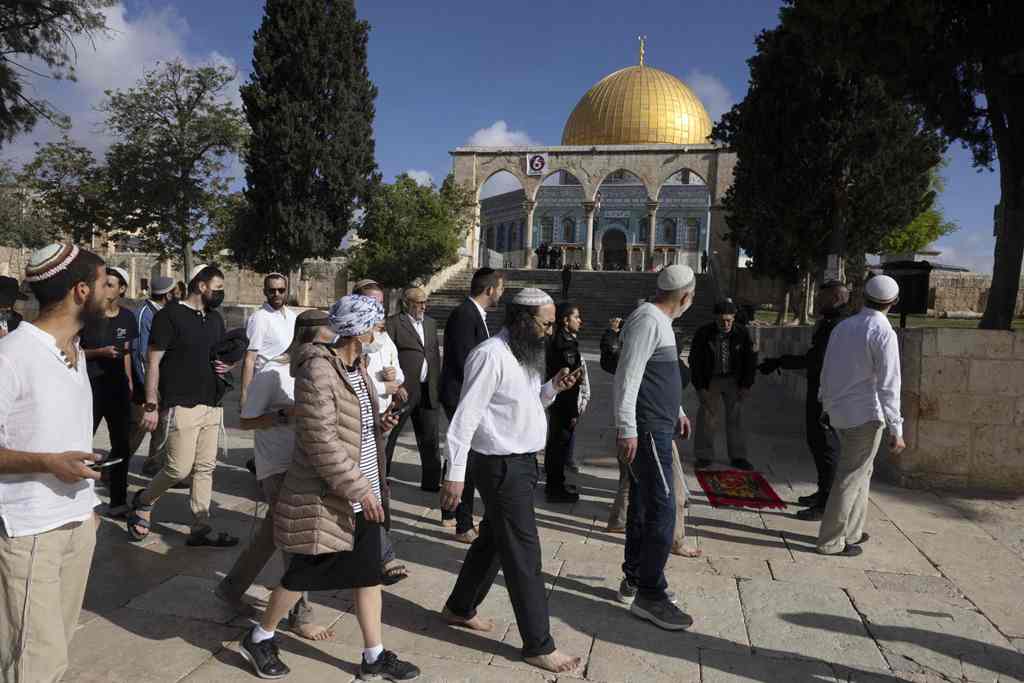Fighting rages outside Marib as Houthis mount new attacks
AL-MUKALLA: The Iran-backed Houthis have mounted new attacks on Yemeni government troops outside the central city of Marib, adding to a string of violations of the UN-brokered truce, Yemen’s Defense Ministry said on Wednesday.
Using heavy artillery, the Houthis attacked army troops and allied tribesmen defending the strategic location from the south, sparking fierce fighting and explosions that rocked parts of the city, according to residents and official media reports.
“The heroes of our armed forces, backed by the men of the popular resistance, are repelling a large-scale attack launched by the Iranian Houthi militia in the southern front of Marib province,” the Defense Ministry said in a statement.
Under the truce that took effect on April 2, the Houthis and the Yemeni government agreed to halt hostilities on all fronts across Yemen, including Marib, and allow fuel ships to enter Hodeidah seaport. Two flights weekly from Sanaa airport to Cairo and Amman were also permitted.
At the same time, the Coalition to Restore Legitimacy in Yemen paused its military operations in Yemen, including airstrikes on Houthi targets that played a pivotal role in thwarting the militia’s attempts to make gains on the ground.
But Yemeni military officials say that the Houthis exploited the truce to mobilize heavy weaponry and fighters outside Marib, and launched attacks on the city.
The Houthis shelled densely populated areas, including Marib and Taiz, with missiles, drones and mortar shells, attacked government troops, and committed hundreds of violations since earlier this month, Yemen’s government said.
On Monday alone, the Houthis violated the truce 118 times in Taiz, Hodeidah, Abyan and Hajjah by mobilizing forces, launching surveillance drones, attacking government troops, setting up new locations and digging trenches, the Defense Ministry said.
Yemeni human rights organizations that document war casualties in Yemen have also reported many Houthi violations of the truce across the country.
The Yemeni Network for Rights and Freedoms said that the Houthis killed 16 civilians, including women and children, abducted 46 more across several provinces, destroyed nine farms and raided nine charities since April 2.
Mortar fire and missiles fired by the Houthis at Marib wounded three civilians, and snipers killed three civilians during the truce, the organization said.
In his speech during the swearing-in before Parliament on Tuesday, Yemen’s new leader Rashad Al-Alimi accused the Iran-backed Houthis of attacking Yemeni cities during the truce and failing to name their joint committee representatives to monitor the opening of roads in besieged Taiz.
He called for new international pressure on the Houthis to accept peace efforts to end the war.
“The coup militia’s disregard for the lives of citizens requires the UN envoy and the international community to take firm measures to control the course of the truce and prevent its collapse,” he said, vowing to seize “any available opportunity” to reach a peace deal to stop the war.
“The council will sincerely pursue any effort for peace, and its hand will remain extended for a just and sustainable peace that preserves the state, its constitutional institutions, its republican system and national unity.”

Yemen troops battle new Houthi attacks near MaribExploiting truce, Houthis deploy war machinery outside Marib



